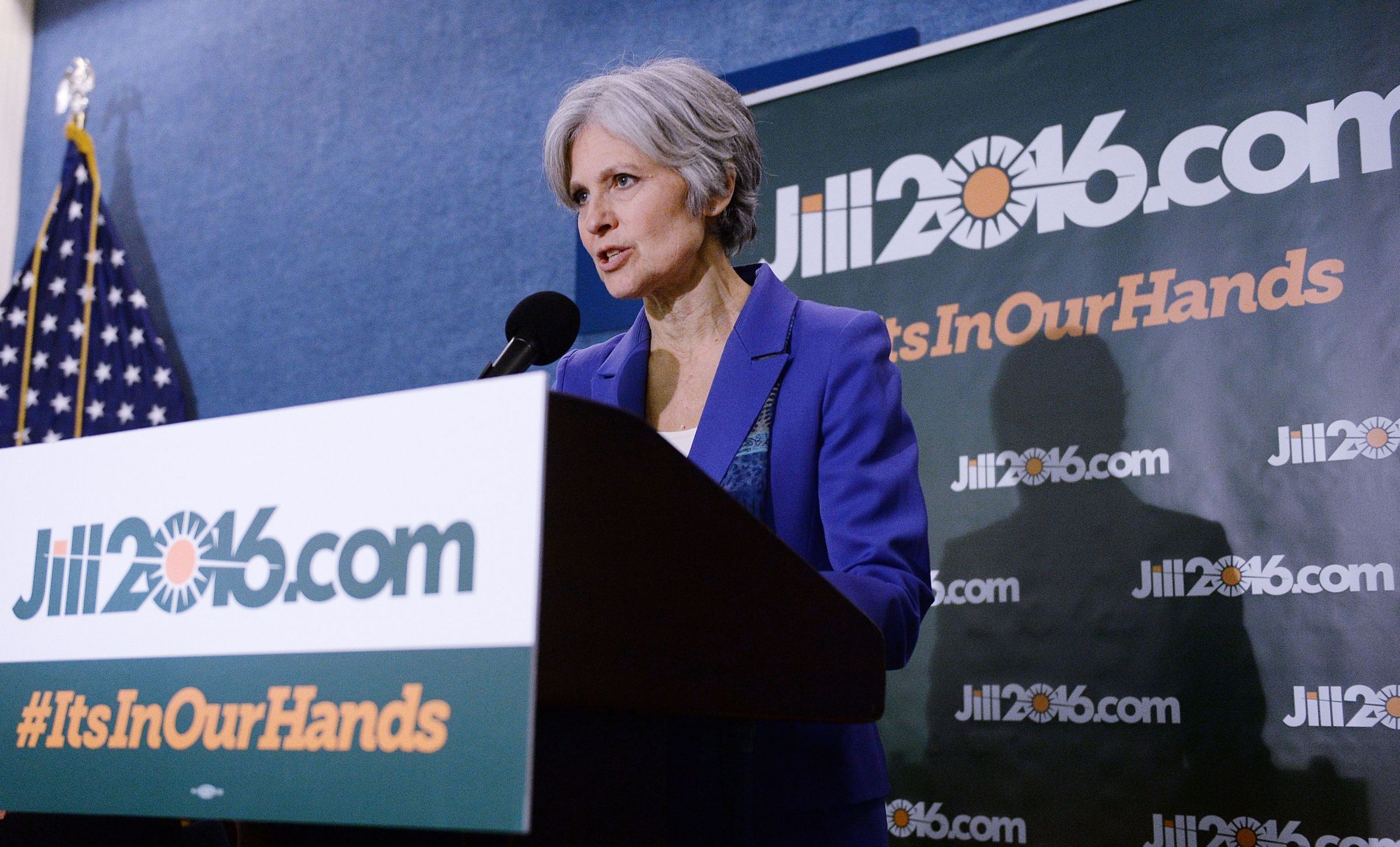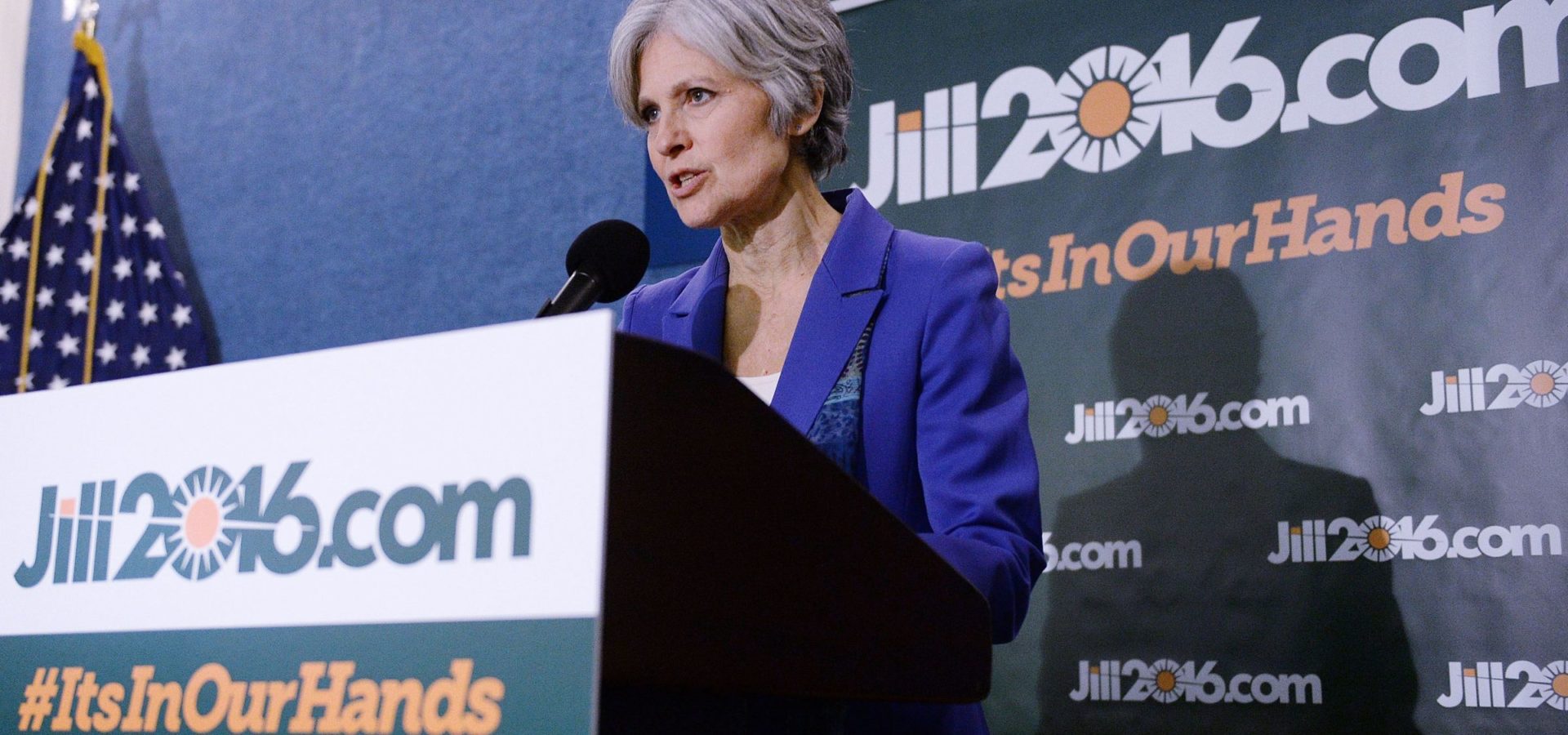
Dr. Jill Stein is running for the Green Party nomination for president. Dr. Stein is a medical doctor and a long time political activist. She ran for president before in 2012 for the Green Party. Dr. Stein also ran for governor of Massachusetts in 2002 and 2010.
The American Herald Tribune spoke with Dr. Stein about foreign policy on Monday, February 29. The Tribune wanted to get Stein’s opinion on the US-Iranian relationship, Israel/Palestine, and other issues related to foreign policy centered on the Middle East.
“We need to go back to the drawing board on our relationship to the Middle East,” Stein said, “Our foreign policy has had catastrophic consequences; it’s based on economic and military domination rather than human rights and diplomacy.”
Stein cited the Iranian-US relationship as a perfect example of the failures of American diplomacy.
“Why did we develop conflict with the Iranians in the first place?” she asked. “It’s a glaring example of the disaster of regime change, sixty years later.”
Stein was referring to the US-backed overthrow of the democratically elected Mohammed Mosaddegh, a reformer who began nationalizing the country’s oil industry. That action, argued Stein, paved the way for his government’s eventual toppling by the CIA.
“We overthrew Mosaddegh and substituted the shah. That resulted in a tyrannical regime, which was then overthrown [by people].”
Stein pointed to the Syrian conflict as another perfect example of the failure of US diplomacy in the region.
“It’s no secret that the Saudis have been behind the terror groups tearing Syria apart,” she explained, citing US patronage of the oil-rich kingdom as a driving force behind instability in the war-torn country.
“Saudi Arabia has been given blanket permission to instigate religious extremism to the tune of $100 billion in US weapons,” she said, “Freely distributed to whichever terrorists they want to support.”
Stein believes that there needs to be a full weapons boycott in Syria and a freeze on the bank accounts of countries sponsoring terror, including Saudi Arabia.
“After 9/11 the US told the Saudis to clean up their act, stop sanctioning terror, etcetera,” said Stein, “But as recently as 2009, Hillary Clinton wrote in a State Department memo that they were still the overwhelming funders of international terrorism. It’s crazy to spend $6 trillion on fighting terrorism when we turn blind eye to the Saudis.”
It’s crazy to spend $6 trillion on fighting terrorism when we turn blind eye to the Saudis.
It’s not only the Saudis, though. Stein argued that US involvement in sectarian conflicts in the Middle East, like the ongoing Syrian civil war, only exacerbate tensions in an already volatile region.
“We’re funding the ‘good-guy terrorists’ now, they might become ‘bad-guy terrorists’ later.” Stein went on to draw a more complex picture of forces on the ground in the conflict: “They’re hybrids of freedom fighters, resistance fighters. Then there are the religious extremists and the warlords. It’s complicated.”
One thing’s for sure, said Stein: constant US meddling in the region is “putting a flamethrower to Middle East.”
The Tribune asked Stein about another controversial point of conflict in the Middle East, the Israel-Palestine conflict.
“We need to go back to drawing board on Israel-Palestine,” Stein began, “The US needs a principled foreign policy. We need to stop aligning with our favored country for that reason alone. We need to, generally, stop arming and funding governments committing war crimes and violating human rights.”
Continuing US funding and support of the Israeli occupation, Stein said, is perpetuating an “absolute disaster of a policy. We’re spending $8 million a day supplying the Israeli military.”
We’re spending $8 million a day supplying the Israeli military.
That money goes to continuing the policies of home demolitions, apartheid, and massacres, Stein said. The policies are “flagrant violations of international law” that will eventually have the effect of “driving Israel out of existence” by its own actions.
Stein has hope that a solution can be reached, she said, but she believes the US needs to step back and let things take their own course.
“Most authorities say a two-state solution is no longer possible due to the carving up of the territories by Israel and the occupation,” Stein said. “My feeling is we shouldn’t be in the business of telling them how to work it out. We should support the grassroots groups that are advocates of human rights and justice, and help them to figure out the best way to end the conflict and promote a integrated and peaceful coexistence going forward.”
Stein believes that the democratic reforms in Iran can offer an opportunity for the US, Iran, and the world at large. She hopes for an end to “a conflict we [the US] completely generated with our misguided and reprehensible policy of regime change. There is enormous potential for engagement.”
Part of that conflict’s resolution is based in the nuclear agreement reached in July of 2015. Although Stein believes that the “issue of the nuclear threat was concocted” by the US, she welcomes the potential for nuclear disarmament and a nuclear free zone in the Middle East as a whole.
“Iran wanted” a nuclear free zone in the Middle East.
Iran wanted a nuclear free zone in the Middle East, Stein pointed out. She added that such a zone could be a “stepping stone to worldwide disarmament.”
“Fortunately things have mellowed on both sides” of the conflict between the US and Iran, Stein said.
“There’s an enormous potential for engagement and peace.”


